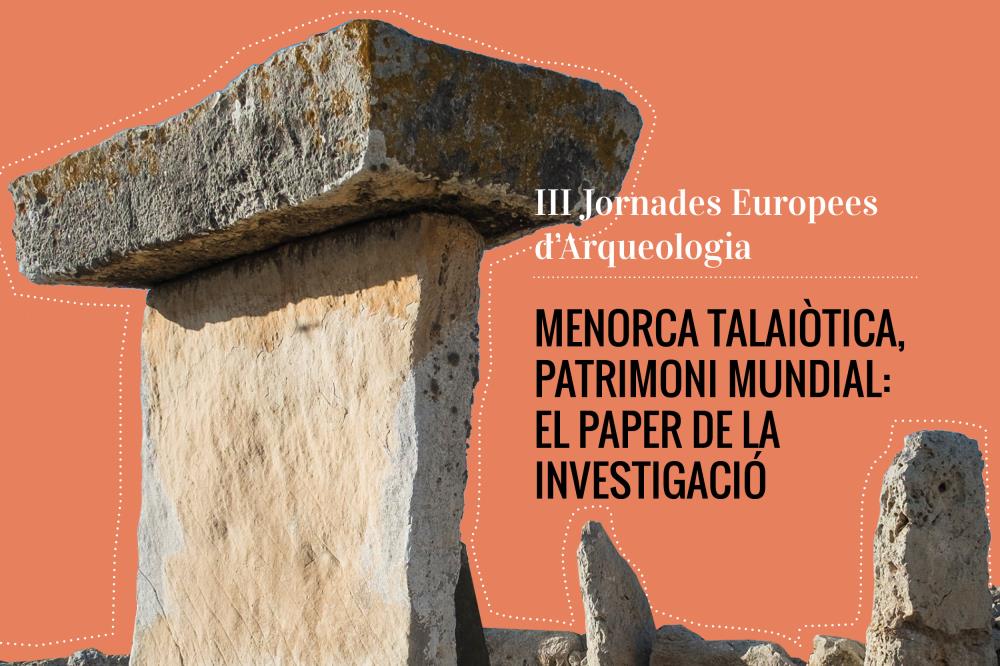
The seminar
Talayotic Menorca, world heritage: the role of research will take place on June 14 at the Museu de Menorca, as part of the European Archaeology Days 2024 (JEA). Organised jointly by the Talayotic Menorca Agency, the Museu de Menorca and the Museu de Can Saura, the aim of this seminar is to delve deeper into the scientific research that has served to establish the exceptional values for which Talayotic Menorca was declared a World Heritage Site in September 2023.
The aim of this seminar is to open a space for interaction between professionals and researchers, but also to make Menorca's heritage known by the archaeologists themselves. Research on the vegetal landscape by Llorenç Picornell and the study of livestock in the Talayotic communities by Lua Valenzuela will occupy the first two conferences, followed by archaeoastronomy in the case of So na Caçana by Irene Riudavets, and an approach to the funerary ceramics of the late Talayotic by Sara Santaella.
Antoni Ferrer, director of the Menorca Talayotic Agency, will open the seminar with an introduction to the values of Talayotic Menorca through scientific research; and anthropologist and professor Jaume Mascaró will close the day with a reflection on the links between Menorcans and Talayotic Menorca.
The complete programme can be downloaded from the Museu de Menorca website and the official Talayotic Menorca website. The conferences can be followed in person and online through the Museu de Menorca's YouTube channel (
https://www.youtube.com/@museudemenorca7480/streams).
The European Days of Archaeology
Since 2019, Spain, together with the other member countries of the Council of Europe, has been holding the European Archaeology Days (Jornadas Europeas de Arqueología, JEA) every year. This initiative originally came from the French National Institute for Preventive Archaeological Research (INRAP).
The JEA aims to bring archaeology as a profession in Europe and its results closer to the public, both from a scientific point of view and to create a common awareness of Europe's archaeological heritage.
With this premise, the aim is to make archaeological heritage available to the public by carrying out various activities for all audiences, which seek to promote a responsible archaeological culture among civil society.